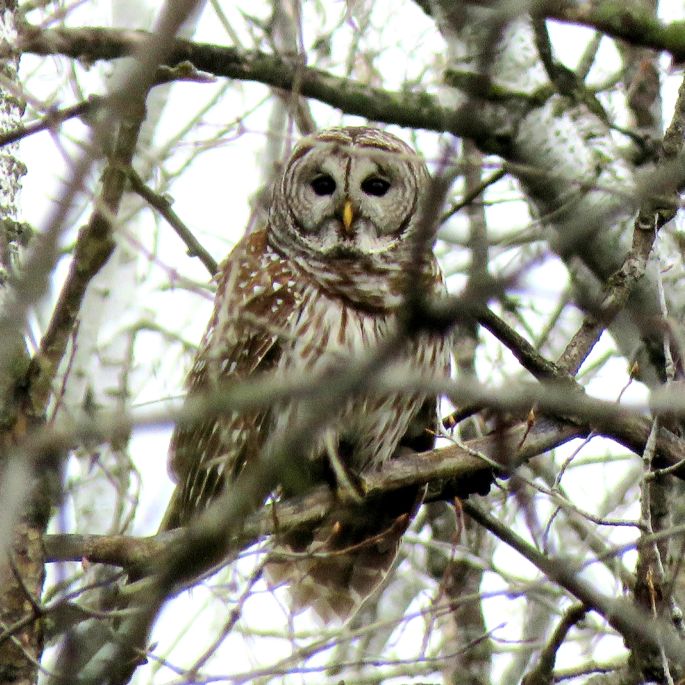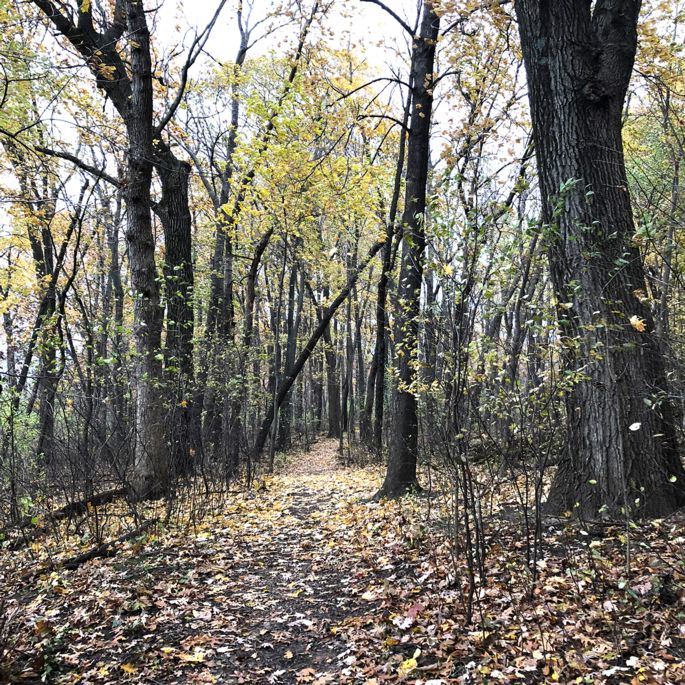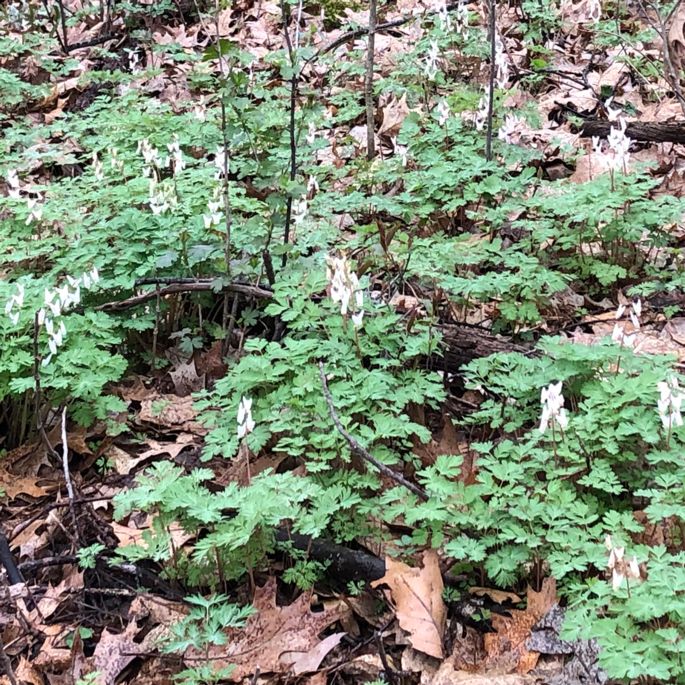Cherokee Marsh Conservation Park - Mendota

| Address: | 4338 Beilfuss Drive |
| Hours: | 4:00am - dusk |
| Park Type: | Conservation |
| Acres: | 122.08 |
| Restroom: | No |
| Drinking Water: | No |
| Shoreline On: | Lake Mendota |
Park Details

Cherokee Marsh Conservation Park, Mendota Unit has lowland forest with large-diameter red and white oak, black cherry, red maple, hackberry, and box elder. In spring, the forest floor has expanses of wildflowers including Dutchman's breeches, cut-leaf toothwort, and white trout lily. Also present are areas of shrub-carr, a wetland community of tall shrubs such as red-osier dogwood, aspen, and willow. The marsh-to-woodland boundary contains an alder thicket, a rare vegetation type for Dane County.
Birdlife includes barred owl, tufted titmouse, white-breasted nuthatch, woodpeckers, and wood-warblers in migration.
The park's wetlands extend to the shoreline of Lake Mendota. Just south of the park is a carry-in canoe/kayak landing at 4106 Veith Ave.
.6 miles of trail in total. A trail at the south end of the park connects to trails in Meadow Ridge Conservation Park.
Visit the Friends of Cherokee Marsh, to learn more including events and volunteer projects.
Park Highlights

Land Management
Cherokee Marsh, Dane County's largest wetland, is located at the head of the chain of Yahara lakes. Cherokee Marsh - Mendota Unit is one piece in a complex of protected land that supports wildlife and native plant communities in the marsh and adjacent uplands.

This park is situated on ancestral Ho-Chunk land. Cherokee Marsh's name dates to a 19th-century hunting club in the area.
The park's acreage was assembled from various parcels beginning in the early 1980s to protect high-quality portions of Cherokee Marsh wetlands and to buffer the marsh from stormwater runoff from expected housing development. A trail system was established in 1997 following the removal of a house in the interior of the property.
Management has included the removal of invasive buckthorn, honeysuckle, garlic mustard, and dame's rocket to open the understory and maintain wildflower populations.
The Friends of Cherokee Marsh sponsor events and volunteer workdays.
At this Park
-
 Dog Free Park
Dog Free Park
Leashed and licensed dogs are allowed in all general Madison parks. There are a few notable exceptions as detailed in MGO 8.195 and highlighted on this page.
- All dogs must be licensed.
- All dogs must have a valid daily or annual Dog Permit.
- All owners must pick up their dog's waste.
- All dogs must be leashed and under the owner's control at all times. MGO 23.32(1)
- Violators may see a fine up to $500
- Violators may see a fine up to $500
Dog Prohibited Areas
(See MGO 8.195)- Conservation parks
- Burial mounds within 20 feet
- City of Madison Golf Courses (during the golf season)
- Olbrich Botanical Gardens
- Playgrounds and areas within 20 feet of a playground surface
- Splash parks, fenced areas(s) surrounding a splash park, and areas within 20 feet of the splash park surface
- Goodman Pool and Breese Stevens Field (except for special events where dogs are specifically invited)
- Programmed sports fields and facilities that are enclosed or substantially enclosed by a fence, whether in use or not
- Programmed, non-fenced sports fields such as soccer, ultimate fields or softball/baseball diamonds while they are in use for programmed activities
- Inside park shelters or other City buildings
- Groomed cross-country ski trails
- In the water or on the beach at designated beach locations
- Park special events except where the sponsor has requested to allow dogs, with the Park Superintendent's approval
-
Cherokee Marsh Conservation Park - Mendota - Dog Free Park
Location: 4338 Beilfuss Drive
-
 Hiking
Explore the many scenic trails and pathways throughout Madison Parks. Year-round restrooms are available at Cherokee Marsh, North and Owen conservation parks.
Hiking
Explore the many scenic trails and pathways throughout Madison Parks. Year-round restrooms are available at Cherokee Marsh, North and Owen conservation parks.
MAPS
Looking for a trail map for a particular park? A number of the individual park pages provide a trail map. Check out the "About This Park" section of your favorite park. Don't see a map? Let us know!
Dogs
Most parks allow leashed & licensed dogs with a Dog Permit. However, dogs are prohibited in all conservation parks and a few other locations. See Dog Free Parks for more information. View all Hiking -
 Scenic Overlook
Many of the Madison Parks are located in ideal locations for sight seeing. Enjoy the view! View all Scenic Overlooks
Scenic Overlook
Many of the Madison Parks are located in ideal locations for sight seeing. Enjoy the view! View all Scenic Overlooks -
 Snowshoeing
Snowshoeing
Snowshoeing in Madison Parks
Experience winter in Madison Parks like never before with snowshoeing! This silent sport is a fantastic way to explore many of our parks during the winter months and is easy to learn. In general parks, snowshoeing is allowed anywhere with good snow cover; typically, this means at least 6" or more. Snowshoeing is not allowed off-trail in a conservation park or on a designated cross-country ski trail.2025-26 Designated Snowshoe Trail Maps
Snowshoe Rentals & Concessions
Concessions and snowshoe rentals are planned to start Saturday, December 20, at the staffed warming pavilion at Door Creek, Elver and Vilas parks. See Cross-Country Ski for hours and status.Hourly Rentals
Available from Door Creek, Elver and Vilas.Type Price Adult $5/ hour Youth - age 15 & younger $3/ hour Each additional hour (adult or youth) $2/ hour Daily Rentals
Longer-term snowshoe rentals are available from Elver and VilasType Price Adult $25/ day; $15 each additional day Youth - age 15 & younger $10/ day; $5 each additional day Where to Snowshoe Guidelines & Tips
- Anywhere with good snow cover, on or off-trail, in a general park that is not a designated cross-country ski trail.
- On trail only, in a conservation park, that is not a designated cross-country ski trail.
- Snowshoeing, hiking, and skiing off-trail can destroy snow tunnels used by native small rodents (deer mice, shrews) due to trampling. These small mammals are an important part of the wetland and grassland ecology in our conservation parks. Destruction of these tunnel networks makes small mammals more vulnerable to predation.
- When in doubt, it's always best to stay on a trail.
- Our trail systems are designed to facilitate controlled public access while protecting environmentally sensitive areas and providing a quiet refuge for wildlife away from people. Disruption of wildlife by human activity during winter adds to the stress they face during a challenging time for their survival.
About This Park
Get to This Park
Conservation Park Rules
Conservation Parks are uniquely managed to further protect native species and wildlife. The preservation of conservation parks includes some of the following. More information may be found in Madison General Ordinances 8.40.
Alcohol
Alcohol is prohibited in all conservation parks.
Bicycles & Motor Vehicles
Bicycles and motor vehicles are restricted to entrance roads and parking lots.
Dogs
Dogs and horses are not allowed.
Fire
Fires and picnics are prohibited.
Firearms
No firearms or weapons are permitted in the restrooms or shelters. Violators are considered trespassers and subject to forfeiture or arrest.
Glass
Glass is not allowed.
Hunting & Trapping
Hunting and trapping are prohibited.
Open Hours
Conservation park hours are 4am until one hour after sunset.
Plants
All plants and animals are protected. Disturbance or removal requires written permission.
Trails
Stay on and use designated trails only.
Trash & Recycling
Place trash in container provided. Please take recyclable material home for proper disposal.



